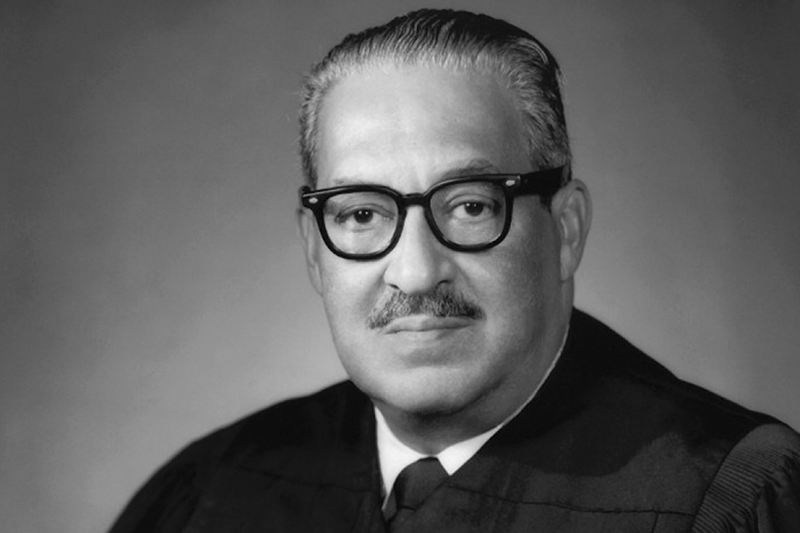
Thurgood Marshall
He was the first African-American lawyer to serve on the Supreme Court of the United States. Marshall had achieved successes in his career in law before the president gave him this appointment in 1967. He had, even before turning 30, obtained victory against the state of Maryland with the case Murray v. Pearson. Murray was a student who had excellent credentials, but he was denied entrance to the University of Maryland School of Law due to his skin colour. Marshall, who had also been denied entrance to the university, became interested in the case and he took it up. Ultimately, the court ruled in favour of Murray, and segregation was consequently outlawed in the state of Maryland. Marshall, who attended law school in Washington, D.C. at Howard University, would also be remembered for the immense contributions he made towards the civil rights movement. A few years after the Murray v. Pearson case, Marshall created the NAACP Legal Defense and Educational Fund, where he argued many cases to the Supreme Court. Reports said that of the 32 cases he argued, he won 29 of them, including Brown v. Board of Education of Topeka – a landmark 1954 Supreme Court case in which the justices ruled unanimously that racial segregation of children in public schools was unconstitutional. Marshall would serve on the Supreme Court of the U.S. for 24 years before his death in 1993.









